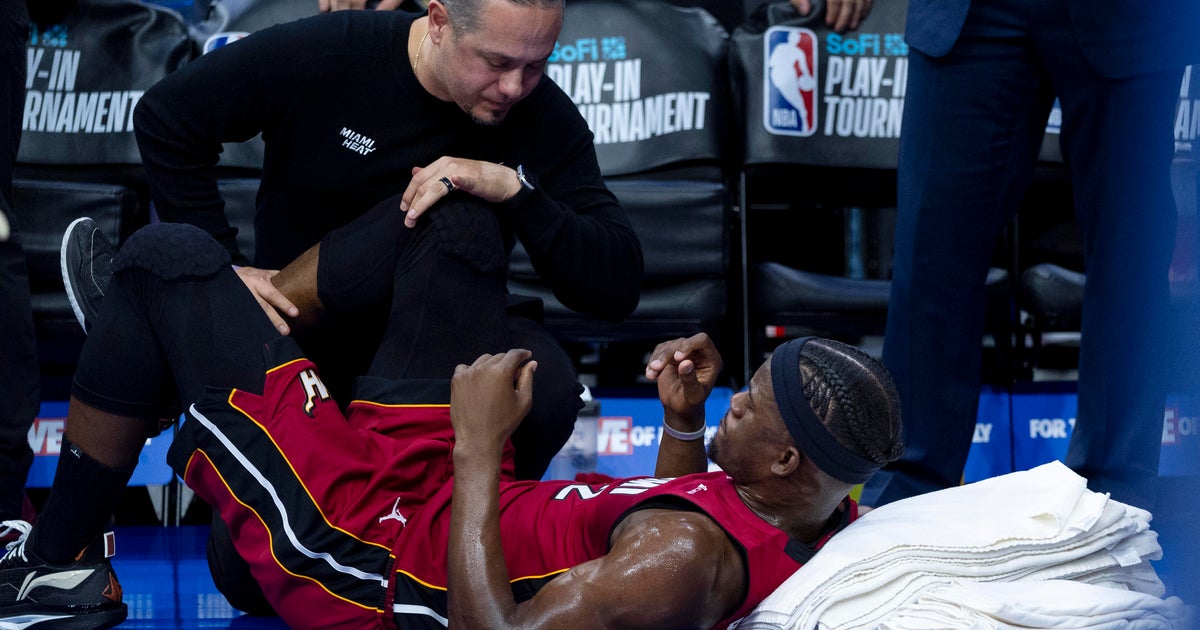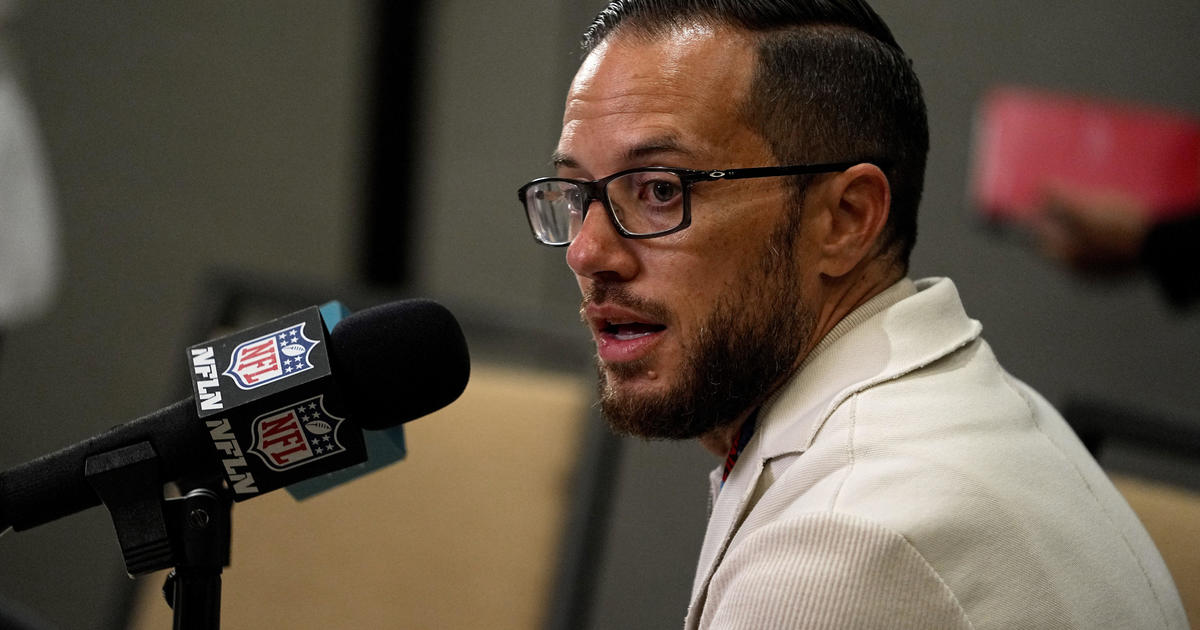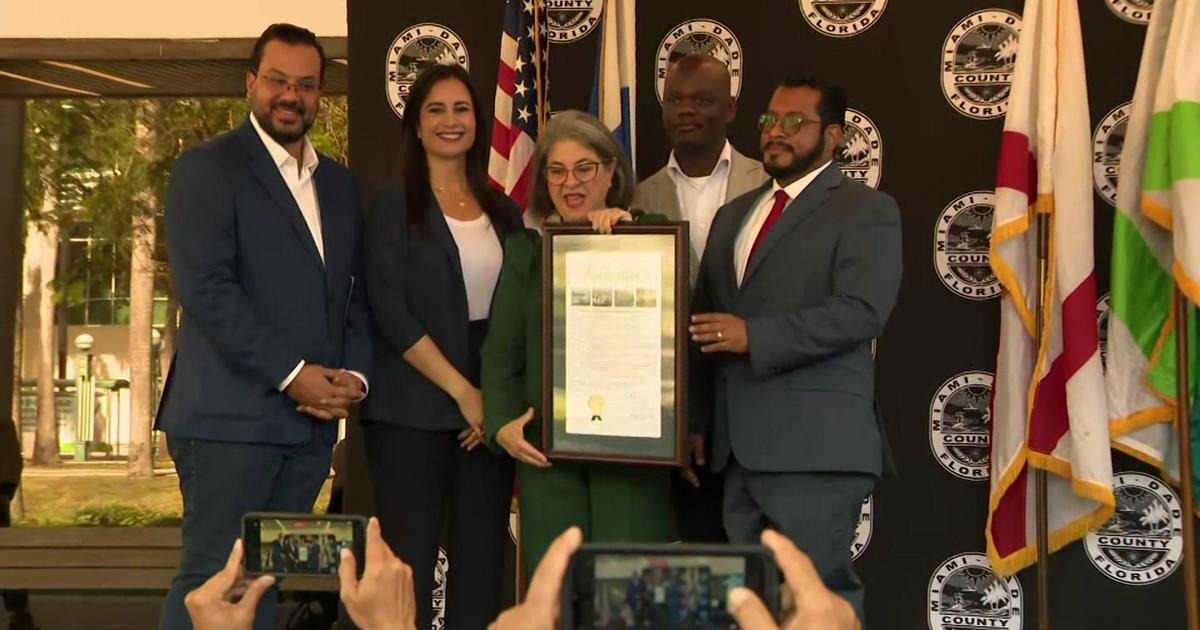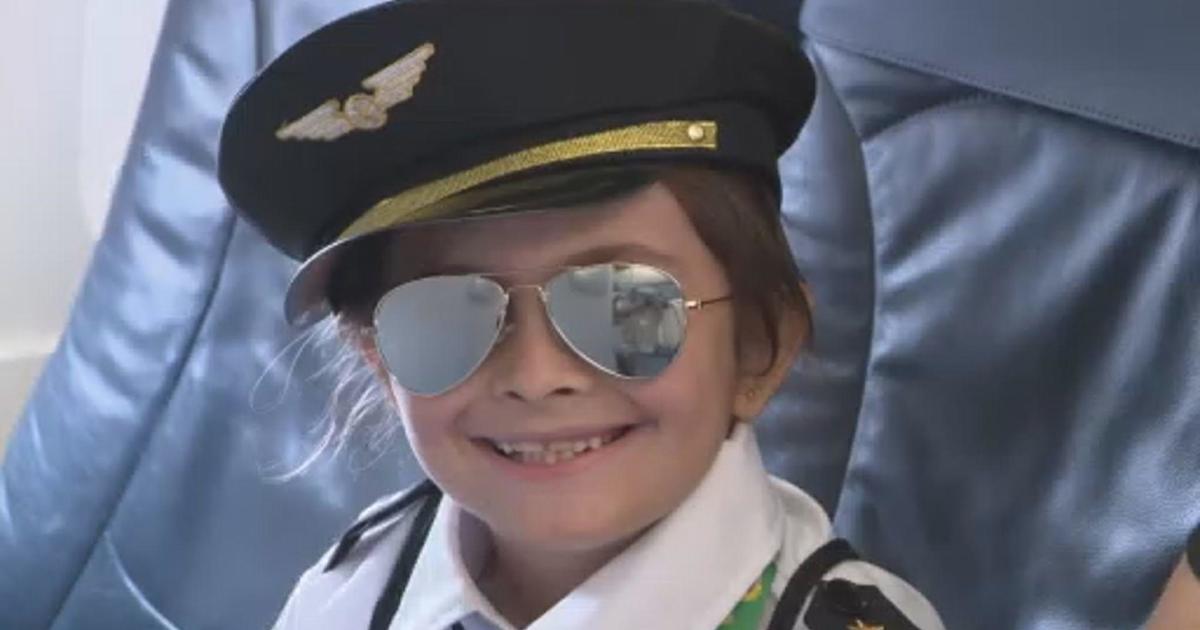I-Team: Aviation Insecurity - The Open Back Door
When TSA (Transportation Security Administration) was first created, the federal agency employed about 16,500 people. Now, critics on Capitol Hill tell the I-Team that there are more than 61,000 people working at TSA.
Since it was founded TSA has spent hundreds of millions of tax dollars on aviation security around the country.
But while all this focus on the front door, the check points of the nation's airline system, critics say security efforts have completely missed the back door, perimeters at airports where comparatively little money and effort have been invested.
"It's like locking the front door to your house and leaving back door unlocked," said security specialist James Butler.
Butler served as a police chief in Coral Gables for years before he retired and went into private consultant work, specializing, in part, on aviation security.
Butler is now one of several experts working for one of Miami's foremost international security consulting groups, Wayne Black and Associates.
Click here to view Wayne Black's website.
As he showed the CBS4 I-Team around the back door at Miami International Airport Butler could not hide his concern.
"This to me is a hole in the system right now," said Butler. "And it's an issue, I think."
Butler took the I-Team on a tour on the back side of Miami International Airport. It's an area where, in part, according to records obtained by the CBS4 I-Team 25,707 workers, contractors, and service personnel gain access to the airport every year.
"If you're a worker you got to go through all the bells and whistles," said Butler. "These people that go through the gates, go relatively unchecked. There really is no inspection." Even as he said this the CBS4 I-Team watched trucks and workers pass through the gates with little inspection and little checking.
Butler also showed us holes in fences, holes in procedures, gate blockades that remained down and not in use for hours on multiple days, inspection protocols at checkpoints that seemed to be ignored, and security set-ups which he says can easily be exploited.
The CBS4 I-Team purposely decided not to show some of the specific problems in order to keep the bad guys from getting ideas.
"The access over here (at the back of the airport) is incredible," said Butler. "I mean, once you get on over there the far west end, and you got a truck, (if) you've got something, you've got access to the whole airport. (You can go) anywhere you want to go."
To check Butler's theories out further, we sent a producer undercover into several warehouses on the back side of the airport.
While there were some chains and sometimes fences to block his access to the airport tarmac, there were other instances where one could walk from outside the warehouse through the building and onto an open airport tarmac with no physical security at all.
The CBS4 I-Team producer did it several times on several days over the course of several weeks. The I-Team producer was never stopped, never checked, never confronted about what he was doing there.
"And I know it's an issue with federal and state employees that work out here because I've done some background and talked with them about it," said Butler. "And they're concerned and frustrated because it's been brought up. But whether it's politics or whether it's money, or both combined, it's an issue right now. It's not being taken care of."
The same concern has been expressed at Fort Lauderdale\Hollywood International Airport.
"You could climb this fence with no problem," said former security worker Joe Johnson.
If the back door is ajar at MIA, critics say it's wide open at Fort Lauderdale\Hollywood International (FLL).
"From a security standpoint, it's not what I consider a secure airport," said Johnson.
Until this past March, Johnson said he worked as a security compliance officer at Fort Lauderdale\ Hollywood International.
"There are no cameras along this (perimeter) fence line (outside the airport)," said Johnson and he showed the CBS4 I-Team around. "There are no motion detectors along this fence line."
At times, Johnson says, he was the only security officer on patrol at night outside the fence he showed us.
"I was the only security personnel working for the airport," said Johnson.
"You were it?" said I-Team investigator Stephen Stock.
"I was it," said Johnson. "I was it. There was no backup. There was nobody else I was working with."
Four months after Johnson says he voluntarily left his job--he says for medical reasons-- someone did gain access over the fence, just as he says he'd been warning his superiors for months might happen.
Joe Johnson "This is the fence the guy jumped," Johnson said as he showed the I-Team the exact spot where 31 year-old Omar Michael Cumberbatch, jumped the airport fence and gained access to FLL's tarmac.
Cumberbatch was suspected in a stabbing in Davie and on July 21, 2010, climbed the airport's fence, then ran onto the tarmac and gained entry into an open Spirit aircraft before he was caught.
CBS4 Coverage Of Airport Security Breaches
July 21, 2010 Security Breach
July 22, 2010 Follow-Up On Security Breach
According to Johnson, that incident demonstrates exactly his point: how poor exterior security at Fort Lauderdale is. And Johnson said it shows how easy it remains to get onto an open runway or an open airplane at FLL.
I-Team investigator Stephen Stock asked Johnson, "What concerns you the most?"
"It's wide open, there's nothing," said Johnson. "There's nothing really there except an eight foot fence with three strands of barbed wire (on top) to stop anybody to gain entry to the airfield."
While local airports are responsible for perimeter security such as the fencing and warehouse security at MIA, ultimately all of these security issues land at the feet of TSA, the agency overseeing security at all major airports in the country.
"As bad it (security) was back then, it's worse now," said TSA employee Bogdan Dzakovich.
Critics of TSA, such as current TSA worker and former FAA red team member Bogdan Dzakovich say to improve security TSA must improve the culture --from the top down.
Dzakovich says that all those administrators Congressman Mica criticizes as creating a top-heavy agency at TSA must do a better job and listen to the security forces on the street and inside the airports where the risks are real and witnessed every day.
"As much as government likes to say how communication is so much better and it's a much better agency and all this other kind of junk, there really is no mechanism to correct problems that people on front lines identify," said Dzakovich.
Right now, Dzakovich says TSA is a system run by a bureaucracy that doesn't listen to well-meaning critiques given by employees who want to make it more secure and better. Dzakovich says currently the system in place is a system that doesn't make air travelers any safer. It is, he says, a system that doesn't work.
"The only thing that deters a terrorist is another human being that's highly motivated, highly trained well-led person that is actually looking for the terrorist profile," said Dzakovich. "And all these Billions of dollars in technology should only be used as an assist for a human being evaluating what the potential threat is. Everything from the no fly list to the bomb sniffing machines and the dogs and stuff like this (can be used to assist motivated human security officers.)"
But Dzakovich says these technologies and techniques need to be the secondary not primary tools used to spot and stop terrorists.
"We should be able to do a better job in detecting people who pose a risk," said Congressman John Mica of Central Florida.
Congressman John Mica is the ranking Republican on the US House Transportation and Infrastructure Committee.
Click here to see the Transportation Committee's website.
Without change, Congressman Mica worries about the next motivated terrorist who will take advantage of the nation's security theater to make a show of his own.
"I think we're safer (than 9-11)," said Congressman Mica, "but for the amount of money we're spending, which is in $8 Billion range, we could probably spend half as money and have half as many employees and twice as much success."
"Is this acceptable?" I-Team investigator Stephen Stock asked Mica.
"It's not," said Mica. "And our attempts have been thwarted to try to get some limits, employment limits on administration and also just better performance, demanding better performance. But we're going in the wrong direction."
Officials with TSA declined several requests to speak about these issues on camera.
At MIA Security Operations Director Frank Capello issued a statement that reads in part "The Miami-Dade Aviation Department continually evaluates the security posture of Miami International Airport against the backdrop of evolving threats."
A spokesman for Fort Lauderdale's airport says former security officer Joe Johnson's assertions are quote "simply not true" and the perimeter around Fort Lauderdale airport is quote "effective".
I-Team Related Links
Miami-Dade Security Operations Statement
Broward County Aviation Department Statement



